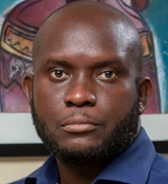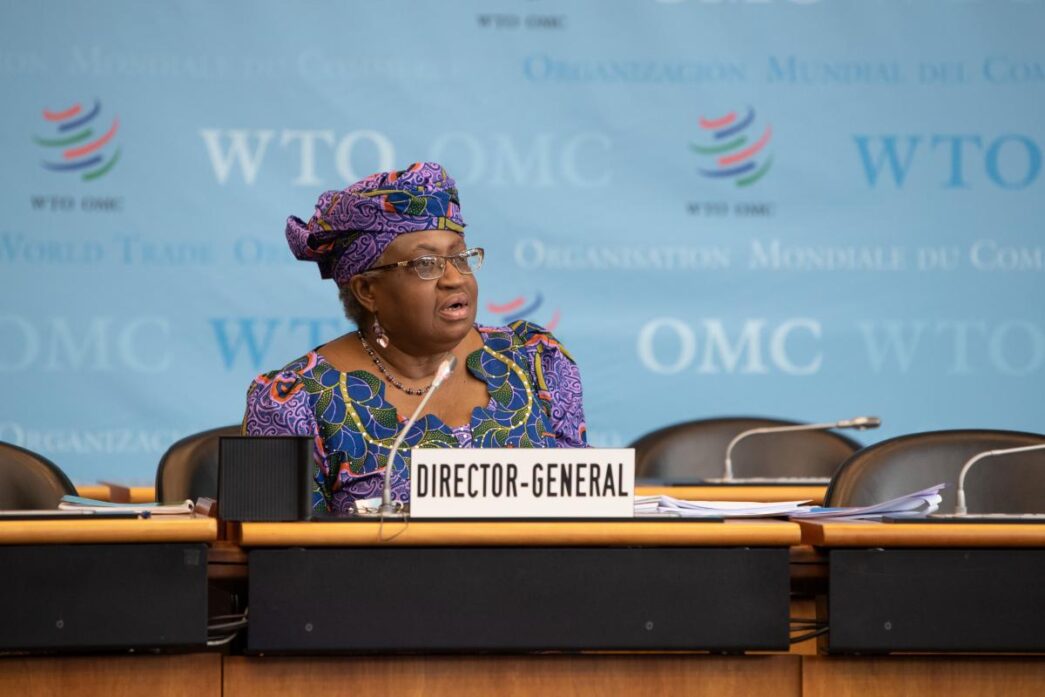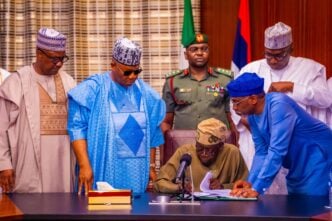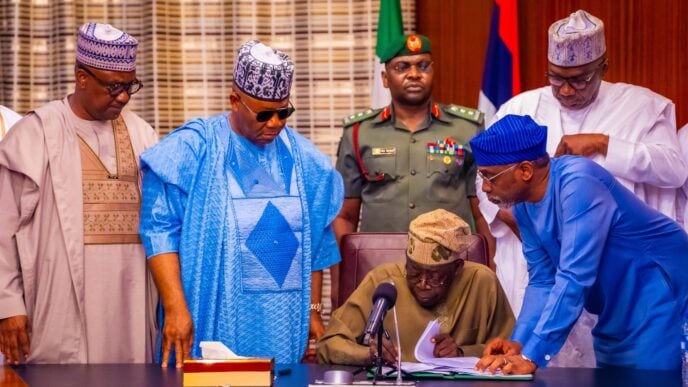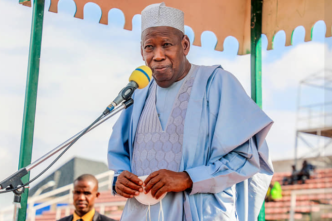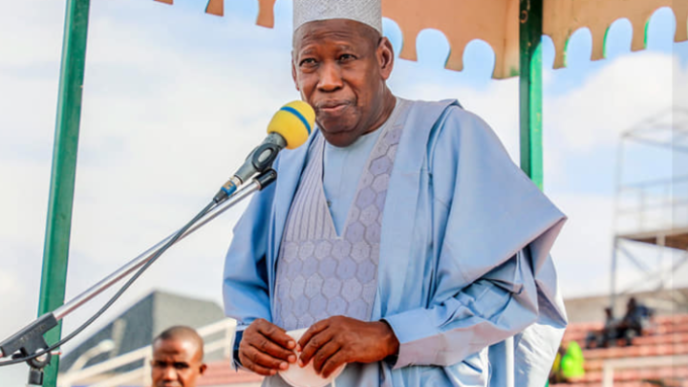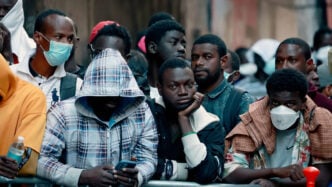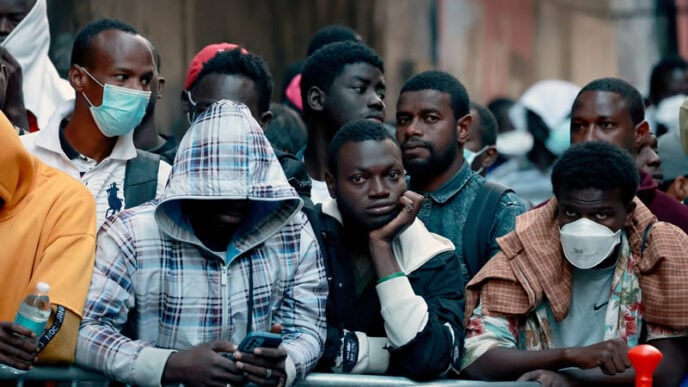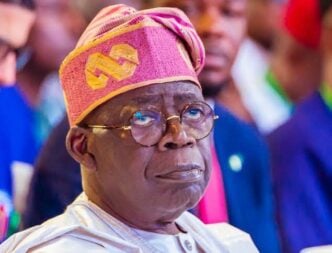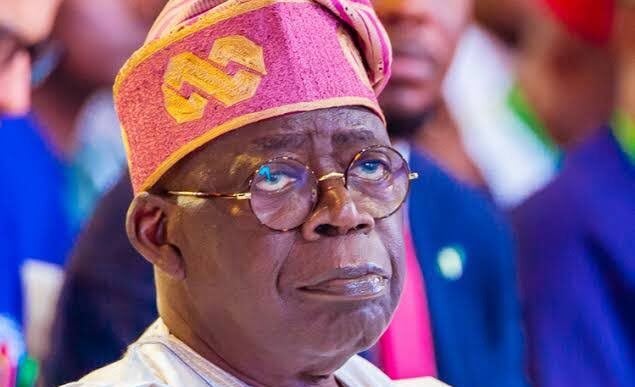At the recently concluded Offshore Technology Conference (OTC) of May 5-8, 2025, in Texas, USA, Senator Heineken Lokpobiri, Nigeria’s Minister of State for Petroleum Resources (Oil), confirmed that the African Export–Import Bank (Afreximbank), led by Nigerian-born Prof. Benedict Okey Oramah, would invest $19 billion to fund the African Energy Bank (AEB). Established in 2024 by Afreximbank and Africa Petroleum Producers’ Organisation (APPO) to address the impending funding crisis in the African oil and gas industry, the opportunities that the Abuja-Nigeria based AEB, which has plans to scale up its capital to $120 billion by 2028 provides for Nigeria, Africa’s leading oil producer, is further testament to the advantages that the country’s human capital in strategic multilateral organisations has provided to the country with a 2025 budget of $36.6 billion (N54.99 trillion). Given the unfolding but defined leadership changes in some of these multilateral economic organisations such as the African Development Bank (AfDB) and Afreximbank, it further raises concerns on how the country’s foreign affairs establishment is strategically managing such competitive multilateral economic engagements, to ensure sustainable beneficial multilateralism.
To better understand the implications of the changes in these multilateral economic institutions, there is need for a global perspective on what these organisations can mean for leading economies of the world- or those aspiring to. The United States of America retains leadership of the World Bank (WB), similar to how Europe leads the International Monetary Fund (IMF), and China leads the Asian Infrastructure Investment Bank (AIIB). There is clarity on what leadership and influence in leading multilateral economic institutions means for their domestic economic development. The same can also apply to Nigeria regarding multilateral economic organisations, especially in Africa.
And what are the unfolding changes in the leadership of some of these African economic organisations?
Dr. Akinwumi Adesina will conclude his ten-year tenure as President of AfDB on September 1, 2025, while Prof. Benedict Okey Oramah will also complete his ten-year tenure as President and Chairman of the Board of Afreximbank in September 2025. There is therefore the need to assess next steps for Nigeria, within the nexus of multilateral economic human capital and domestic economic development. That both men emerged as Presidents and leaders of Africa’s leading multilateral financial institutions in 2015, says a lot about the capacity and comprehension of Nigeria’s political leadership at the time, regarding the relationship between multilateral economic organisations and domestic economic development, especially former President Goodluck Jonathan, under whose tenure, Nigeria emerged as Africa’s largest economy, the continent’s leading investment destination and also a global destination for investment. That Dr. Ngozi Okonjo-Iweala, the then Finance Minister and Coordinating Minister of Economy under President Jonathan had a previous career in multilateral economic institutions especially as Managing Director of the World Bank, would have also been an influencing factor, as she successfully led Dr. Adesina’s campaign for the AfDB presidency in 2015, following his nomination by President Jonathan.
Advertisement
Nigeria’s economic history further buttresses the importance of multilateral economic capacity. With the return to democracy in 1999, Nigeria under President Olusegun Obasanjo advocated internationally for foreign debt relief, as foreign debt servicing consumed a large chunk of government revenue. Obasanjo in a strategic move, appointed the then World Bank Vice President, Dr. Ngozi Okonjo-Iweala as Nigeria’s Finance Minister. She then led economic efforts to negotiate the liquidation of Nigeria’s foreign debt of $30 billion, with a huge discount of $18 billion. A foreign debt-free Nigeria was subsequently able to fund its most comprehensive energy expansion programme, alongside other socioeconomic reforms.
Dr. Okonjo-Iweala returned to the World Bank as Managing Director and number two position in 2007, before returning as Finance Minister under President Goodluck Jonathan from 2011 to 2015, during which sustained economic reforms culminated in Nigeria emerging as Africa’s largest economy in 2014, and among the leading investment destinations in the world. That she subsequently emerged as World Trade Organisation (WTO) Director General in 2021 where she is currently serving her second term, comes as no surprise about the distinguished Nigerian, whose father and Professor of Statistics/Economics Obi (Prof) Chukwuka Okonjo, had a working stint at the United Nations from 1974 to 1985. During the period, he installed the first African population information network known as the Population Information and Documentation System for Africa (POSA) in Ghana, and was conferred with the Companion of the Order of the Star of Ghana (CSG), the highest civil national award from the Government of Ghana in 2016. In his later role as Education Adviser to Ghana’s Minister of Education and Culture from 1985, he was instrumental in conceptualizing and implementing several reforms that reduced the length of pre-tertiary education from 17 to 12 years, increasing secondary school admission from 26,000 to 260,000 and 12 per cent per annum growth in primary school enrolment- twice the rate approved by the World Bank for Ghana.
Back to Adesina, Oramah, and Nigeria. As he ends his tenure as President of AfDB in September 2025, which is owned by 54 African states and G7 nations such as the US and Japan- with Nigeria as its largest shareholder at 9.3 percent, Dr. Adesina has had a successful tenure. Beginning in 2015 with the launch of the ‘High 5s’ development priorities: Light Up and Power Africa, Feed Africa, Industrialize Africa, Integrate Africa, and Improve the Quality of Life for the People of Africa, he led the bank to the largest capital increase in its history, from $93 billion in 2015 to $318 billion; the record replenishment of the African Development Fund, raising it to $8.9 billion; with over 565 million Africans benefitting directly and indirectly from the Bank’s investments under his leadership. The disbursements during this time were about $10 billion annually to reach $100 billion in 2025 ending.
Advertisement
The Bank launched a $1.5 billion African Emergency Food Production Facility (AEFPF) in 2022 to prevent a food crisis from the Russia-Ukraine war, by supporting 20 million farmers to access climate resilient agricultural technologies and produce 38 million metric tons of food valued at $12 billion. The Special Agro-Industrial Processing Zones (SAPZ) program was initiated across 18 African countries, while food security was enhanced on the continent, with over 101 million people becoming food secure, and $72 billion mobilized for food and agriculture delivery compacts. While about 127 million gained access to better health services, 61 million to clean water, 28 million more people to electricity, 121 million people to improved transport, and 33 million to improved sanitation, the Affirmative Finance Action for Women (AFAWA) initiative provided $2.5 billion for 24,000 women-owned businesses. The Bank spent over $55 billion in infrastructure within the ten-year period to make AfDB Africa’s largest multilateral financier of infrastructure.
Still on infrastructure, while Africa50 was established and has raised over $1 billion to accelerate private sector investment in infrastructure, the Alliance for Green Infrastructure in Africa (AGIA) has mobilized $10 billion for green infrastructure, while $3 billion was invested in quality health infrastructure, and another $3 billion to enhance the continent’s pharmaceutical capacity. The Mission 300 Energy Summit of 2025 by AfDB, World Bank Group, and other partners, is designed to provide 300 million more Africans with access to electricity by 2030. While the Africa Investment Forum was established in 2018 and has mobilized over $200 billion of investment interest, the African Financing Stability Mechanism was established with the mandate of the African Union Assembly to provide at least $20 billion in debt refinancing for African countries. Adesina’s performance also puts in good standing, the next round of three-year cycle replenishment for the Africa Development Fund (ADF) in November 2025, targeted at $25 billion.
In addition to his excellent performance across Africa, Nigeria has been an equitable socioeconomic beneficiary of Dr. Adesina’s tenure as AfDB President, through some of the projects and programmes listed above. Others, in more detail include the $244 million for emergency food production from the AEFPF, and eight subnational government benefiting from Phase 1 of the Special Agro-Industrial Processing Zones (SAPZ) $520 million program for the production, processing, storage, transport, and marketing of commodities – including cotton and maize. The project areas cover 19 percent of Nigeria’s land mass and 50.4 million of the country’s population. The SAPZ is well designed to sustainably enhance Nigeria’s agricultural value chains, create jobs, stimulate rural development and provide fillip to the development of Nigeria’s non-oil sector, for strengthened economic complexity.
Nigerian businesses have had increased access to merit-based AfDB financing for energy, transport, digital and other critical infrastructure. The 443 km long Enugu-Bamenda Highway $423 million project that facilitates Nigeria’s regional economic development, which is part of Trans-African 6,300 km Highway conceived over 40 years ago, has been substantially completed after many delays. The Nigeria Trust Fund (NTF) of the AFDB was replenished for another 15 years with $500 million, in May 2025, while professionals of Nigerian origin have attained merit-based prominence within the Bank. In sum, Adesina’s tenure has been very positive for Africa and Nigeria. His successor is primed to harness the estimated $2.5 trillion in assets by the continent’s wealthy individuals, another $2 trillion managed by pension funds, sovereign wealth funds and insurers, and unlocking the $4.5 trillion in domestic savings and investment capacity within the continent.
Advertisement
Prof. Oramah is the other Nigerian handing over leadership of one of Africa’s leading multilateral economic institutions in 2025, and whose successor will have a lot of positive projects and programmes to build on. Under Oramah’s leadership of Afreximbank as President and Chairman of the Board, which began in mid-2015, the bank’s total assets have grown from $5 billion to over $42.7 billion, while assets and shareholder funds have increased to $7.2 billion. Net loans and advances are at US$27.8 billion, even as asset quality remained strong with non-performing loans at 2.44 percent. Liquid assets account for 20 percent of total assets, with shareholders’ equity amounting to US$7.5 billion, supported by retained earnings and capital subscriptions under its General Capital Increase II. The Bank launched the Fund for Export Development in Africa (FEDA) in 2021 to bridge the continent’s equity financing gap, with a focus on manufacturing, logistics, agro-processing, and digital infrastructure sectors, with fund deployment amounting to $579 million in Q1 2025.
Instrumental support has been provided for the African Continental Free Trade Area (AfCFTA)- the world’s largest free trade area, by the Bank. It includes the AfCFTA Adjustment Fund, which provides financial support to African countries in managing possible revenue losses as a result of tariff removals; and to private sector actors to boost their competitiveness. The Intra-African Trade Fair (IATF) was established in 2018 to boost trade and investment within the continent, while the Pan-African Payment and Settlement System (PAPSS) was launched in 2022, to enable real-time local currency transactions and addresses payment challenges that have hindered intra-African trade. Other programs include the Afeximbank Transit Guarantee Scheme with collaboration with regional economic communities and customs authorities for seamless movement of goods across borders through the provision of financial guarantees; the Automotive Strategy for building a regional vehicle manufacturing value chain, and the AfrexInsure, launched in 2023 as specialty insurer covering trade-related risks such as all-risk construction insurance for the Afreximbank Africa Trade Centre in Harare.
Under Oramah’s leadership, the Bank has given economic effect to the visionary move by the African Union (AU) in 2012 to designate Africa’s Diaspora as the ‘6th Region’ of the union and continent, through the establishment of a Diaspora Division within the AU. This arose from the AU’s ‘Declaration of the Global African Diaspora Summit’ at Sandton, South Africa on May 25, 2012. The annual AfriCaribbean Trade and Investment Forum (ACTIF) which began in 2022, the October 2023 adoption of Afreximbank’s PAPSS by the Governors of the Central Banks in the Caribbean (CARICOM) region for intra-regional transactions, the partnership memorandum with the Caribbean Export Development Agency (CEDA) to formalise collaboration between the two institutions in June 2024, the ongoing construction of the first-ever state-of-the-art Afreximbank African Trade Centre (AATC) in the Caribbean at Barbados and the provision of $1.5 billion credit facility for Caribbean nations, are examples of programs and projects by the Bank under Prof. Oramah’s leadership in economically consolidating Africa’s relationship the Caribbean and its Diaspora.
Within the maritime sector, the Bank in June 2024 led a consortium that includes the AfDB to execute a debt funding facility agreement of $94 million for the construction and operation of a floating dock ship repair facility in the port of Takoradi, Ghana, while it also appended to an indicative term sheet with APD-Cameroon for the financing of the development and operation of a $244 million new port terminal in Douala, Cameroon. Earlier in July 2023, the disbursement of a $120-million financing facility to Djibouti’s Great Horn Investment Holding (GHIH) for the execution of a series of development projects in the country’s Damerjog Industrial Development Free Trade Zone (FTZ), was announced. The facility will support the development of the Damerjog Oil Jetty that provides marine connection to the FTZ, the construction of a 150,000m³ first storage depot/oil tank farm, and maritime economic access for neighbouring Ethiopia and Somalia. In the creative sector, the Bank through its Fund for Export-Development in Africa (FEDA), developed an Africa Film Fund as part of its Creative Africa Nexus Programme (CANEX), with $1 billion designed to enhance the continent’s film and creative industry.
Advertisement
Given the critical role that energy plays in enhancing Africa’s trade competitiveness, Afreximbank through a project preparation facility financing agreement, got involved in the development of a 200 MW reservoir-based hydropower project to be located along the Lufira River, in the Democratic Republic of Congo (DRC). The project will provide clean, reliable and inexpensive power to mining companies for the beneficiation of critical minerals including copper and cobalt within the DRC, and nurturing significant value retention.
The Bank in April 2025 launched the $3 billion Revolving Intra-African Oil Import Financing Programme for the provision of critical trade finance to oil traders, especially for Premium Motor Spirit (PMS), Automotive Gas Oil (AGO), Heavy Fuel Oil (HFO), Jet Fuel, and Kerosene. The eligible exporters are refineries operating in Africa. The revolving facility will finance about $10 – $14 billion of Intra-African petroleum imports, as a means of addressing persistent reliance on imported refined petroleum products in the continent, which accounted for $30 billion annually in petroleum import costs due to inadequate refining. The programme supports AfCFTA, intra-continental trade, job creation and industrialisation. With its financing of the 200,000 barrels per day (bpd) Lobito Refinery development, progress on the 60,000 bpd Cabinda Refinery, and continual trade finance support for Société Ivoirienne de Raffinage (SIR), Cote d’Ivoire, the Afreximbank aims to create over 1.3 million bpd refining capacity and converting the Gulf of Guinea from an exporter of crude oil, into a major refining hub for Africa and the globe.
Advertisement
Similar to the AfDB, Nigeria has been an equitable and merit-driven beneficiary of Afreximbank’s economic programmes and projects. The Bank is involved in the financing of Dangote Refinery 650,000 bpd with over $4 billion, while providing $200 million in 2024 to BUA Group that includes the development of BUA Refinery 200,000 bpd in Akwa Ibom, $259 million in 2023 for Azikel Refinery 12,000 bpd in Bayelsa and provided $600 million to Heirs Holdings that supported its acquisition of Oil Mining License (OML) 17 from Shell/Total/ENI in 2021. The siting of the Africa Energy Bank with $19 billion funding in Nigeria is appropriate, as Africa’s largest petroleum producer. By some estimates, Nigeria has accounted for about 60 percent of the Bank’s over $30 billion support to the oil and gas sector.
With the ‘Project Gazelle Funding Limited’, the bank provided $3.3 billion to the Nigerian government to support macroeconomic stability, and address the economic shocks arising from the simultaneous removal of petroleum subsidies and floating of the naira currency from May 2023. With medical tourism costing Nigeria $2 billion annually, and estimated $6-10 billion annually from African economies, the establishment of the 500-bed African Medical Centre of Excellence (AMCE) $300 million tertiary medical facility in Abuja in June 2025, provides not just improved medical services for the continent, but conserves foreign exchange. The first of five across Africa, the medical facility developed with Kings College Hospital London (KCL), provides world-class services across oncology, haematology, cardiology, and general medical services. ACME Abuja will also provide research and development in medicine and clinical services, residency, training and observership placement programmes to physicians and medical students from Nigeria and Africa. The Bank and KCL will establish a Medical & Nursing School in Abuja to support the production of quality medical personnel, as well as collaborate with other colleges of medicine in Nigeria and across the continent.
Advertisement
There is a memorandum of understanding (MOU) between the Bank and Nigeria’s Health Ministry worth $1 billion in support of the country’s healthcare value chain development programme, plus the establishment of the Afreximbank African Trade Centre (AATC) in Abuja’s Central Business District. The AATC is a $120 million investment that addresses the severe lack of trade information and support services, and is therefore a practical response to the systemic challenges that have hindered trade growth in Africa. For subnationals, some of the major deliverables include the May 2024 signing of a Project Preparation Facility Agreement and Financial Advisory Agreement with Cross River State Government, for the Bakassi Deep Seaport (estimated to cost $3.5 billion), the 217km Superhighway integrated Project, as well as the Obudu Cattle Ranch and Mountain Resort project. There is also the African Sub-Sovereign Governments Network (AfSNET), which is a dedicated mechanism that subnational governments can leverage to promote trade, investment, industrialisation and development. In sum, Prof. Oramah’s tenure has been very positive for Africa and Nigeria.
With some of the detailed benefits that Nigeria has derived from its leading multilateral economic human capital, ranging from $30 billion debt relief in 2006, to healthcare, agriculture, energy and infrastructure development among others, what then should be the outlook, as Dr. Adesina and Prof. Oramah conclude their tenures at AfDB and Afreximbank?
Advertisement
Given the very competitive and merit-based recruitment process of the leadership of multilateral economic organisations, there is need for mentoring by those with the experience, as well as both economic and foreign policy strategy that prioritises sustainable talent pool management. Dr. Okonjo-Iweala, Dr. Adesina and Prof. Oramah had spent decades in their careers before assuming leadership positions, so the process has to be a sustainable long-term continuous process. Given the changes in international rules-based order, plus the realities of contemporary geopolitics and geoeconomics, there is also the need to briefly assess other Nigerians who should be on the radar, as countries try to navigate their economic pathways in a changing international economic system.
Arunma Oteh, who was World Bank Vice President and Treasurer from 2015 to 2018, is among the Nigerian multilateral economic talent pool to note. During her time at the World Bank, she led a team that managed a $200 billion debt portfolio, $200 billion assets for 65 internal and external clients including the World Bank Group, central banks, sovereign wealth funds and other official institutions. She managed credit in over 50 currencies, by executing transactions and coordinating credit rating and capital market relationships for the International Development Association and International Bank for Reconstruction and Development of the World Bank. She was responsible for wide-ranging financial advisory business for World Bank clients, and leveraging a derivatives portfolio of more than $600 billion for risk management and process annual cashflows of more than $7 trillion. She previously served as Director General of the Securities and Exchange Commission (SEC), Nigeria capital market regulatory body from 2010 to 2015, during which she also served on Nigeria’s Economic Management team. Before her time at SEC Nigeria, she had significant multilateral leadership experience as AfDB Group Vice President, Corporate Services from 2006 to 2009, and as AfDB Group Treasurer from 2001 to 2006.
Given that below par economic management in Nigeria since 2015 has created another external debt challenge, with external debt now $45.78 billion and could rise to approximately $69.92 billion if government’s plans in May 2025 to borrow an extra $24.14 billion is approved, debt servicing is projected to consume 75 percent of revenue in 2025, which leaves minimal resources for socioeconomic development. Similar to how Dr. Okonjo-Iweala utilized her experience and network as World Bank Vice President to secure $30 billion external debt relief for Nigeria in 2006 as Finance Minister, Arunma Oteh’s experience and network as World Bank Vice President where she was responsible for managing a debt portfolio of $200 billion, could be instrumental for Nigeria’s new push for debt relief, going by President Tinubu’s open appeal for debt relief at the 2024 United Nations General Assembly (UNGA).
Also with World Bank senior leadership experience has been Obiageli Ezekwesili, who was Vice President for the Africa Region at the World Bank from 2007 to 2012. She was previously Nigeria’s Minister of Education and Minister of Solid Minerals. There is also the British-Nigerian Sandie Okoro, who served as Senior Vice President and General Counsel of the World Bank Group from 2017 to 2022, and was previously General Counsel for HSBC Global Asset Management.
Dr. Mansur Muhtar, who was Vice-President of Operations at the Islamic Development Bank from 2014 to 2024, is another prominent Nigerian multilateral economic human capital. Currently serving as Chairman of the Board of Nigeria’s Bank of Industry (BOI) since 2024, he previously served as Executive Director on the Board of the World Bank Group from 2011 to 2014, and as Co-Chair of the UN Inter-Governmental Committee of Experts on Sustainable Development Finance. A former Nigerian Finance Minister from 2008 to 2010, he was Director-General of Nigeria’s Debt Management Office from 2003 to 2007, and also had a stint as Executive Director at the AfDB. One of his successors as Executive Director at the World Bank Group is Zainab Ahmed, who has been representing Angola, Nigeria, and South Africa since November 2024, after working as Alternate Executive Director from July 2023. She was Nigeria’s Minister of Finance, Budget, and National Planning from 2019 to 2023, as well as Minister of State for Budget and National Planning from 2015 to 2018.
Still within the multilateral economic leadership space has been Chinelo Anohu, who was appointed as Head and Senior Director of the Africa Investment Forum (AIF) of the AfDB in 2019. She previously served as Director-General of the National Pension Commission of Nigeria from 2014 to 2017, during which time the number of contributors rose from 5 million to about 8 million, while assets under her management grew from $19.3 billion to a record $42 billion. A member of the London Stock Exchange Africa Advisory Board, she began her career as an attorney with Chevron. The AfDB’s AIF which Anohu leads, is the foremost continental investment platform, with Afreximbank, Africa Finance Corporation, Africa50, Development Bank of Southern Africa, European Investment Bank, Islamic Development Bank and Trade & Development Bank as partners. With its unique ‘Investment Board Rooms’, the AIF, which advances projects to bankable stages, raises capital, and accelerates deals to financial closure in sync with UN SDGs, AU High 5s and AU Agenda 2063, has mobilisied over $180 billion in investment interest and connected over 100 projects to capital in sectors critical to the continent’s development. Her record in investment mobilization at the AIF is something that Nigeria can harness to boost FDI into the country, especially in the non-oil sector.
With U.S. leadership of the World Bank, European leadership of the IMF and China’s leadership of the AIIB, there is an understanding of the importance of the impact multilateral economic institutions can have on economies of countries. For Nigeria that negotiated an external debt relief of $30 billion in 2006, and has received significant investments in healthcare, agriculture, energy, maritime and infrastructure development, largely through the instrumentality of her human capital who have held senior leadership positions in multilateral financial institutions, there is need for government economic and foreign policy to be concerted in encouraging, developing and sustaining a talent pool of highly qualified Nigerians to enlist and thrive in multilateral economic institutions, given the merit-based competitive nature of such institutions. The changes in global geopolitics and geoeconomics have made multilateral financing more critical. The U.S., the world’s largest economy, has gone further to nominate naturalized Americans such as Australian-born James Wolfensohn, Korean-born Jim Kim and incumbent Indian-born Ajaypal Banga as Presidents of the World bank Group, as a means of putting forward their most competitive talent pool. This can serve as additional human resource strategy for Nigeria, especially as the country looks forward to next steps- with Dr. Adesina and Prof. Oramah handing over leadership of AfDB and Afreximbank respectively, in September 2025.
Uwanaka writes from African University of Science and Technology, Abuja. [email protected]
Views expressed by contributors are strictly personal and not of TheCable.
